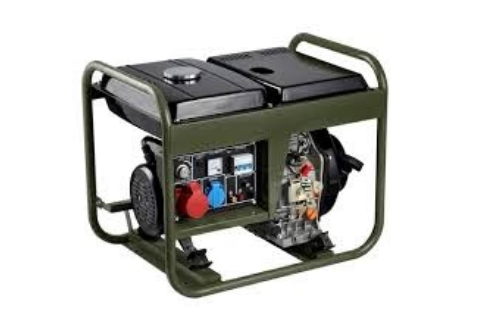In times of uncertainty, having a reliable power source is crucial. Natural disasters, severe weather conditions, or unexpected power outages can leave us without electricity for hours, days, or even weeks. In such situations, a backup generator becomes an invaluable asset, ensuring that we have access to essential electricity when we need it the most.
A backup generator is a standalone power system that kicks in automatically when the main power supply fails. It acts as a reliable backup, providing electricity to keep essential appliances and systems running smoothly during emergencies. These generators are designed to restore power quickly, minimizing disruptions and allowing households and businesses to continue their operations seamlessly.
One of the key advantages of backup generators is their ability to provide a consistent power supply. Unlike portable generators, which require manual intervention and fuel refills, backup generators are permanently installed and connected to a fuel source such as natural gas or propane. This means that they can provide continuous power for extended periods without the need for human intervention. Whether it's keeping the lights on, running critical medical equipment, or preserving perishable food in refrigerators, backup generators offer a reliable solution that ensures our safety, comfort, and peace of mind during emergencies.
Backup generators come in various sizes and capacities to suit different needs. Smaller residential generators are designed to power essential appliances and systems such as refrigerators, sump pumps, and lighting circuits. On the other hand, larger commercial generators can provide electricity to an entire building, including elevators, HVAC systems, and computer networks. The size and capacity of the generator depend on factors such as the size of the premises, power requirements, and the number of appliances or systems that need to be powered during an outage.

Installing a backup generator requires professional assistance to ensure proper integration with the electrical system. A transfer switch is an essential component of the installation, as it automatically detects power loss and seamlessly switches the electrical load from the main grid to the generator. This automatic transfer ensures a smooth transition and eliminates the need for manual intervention, providing a hassle-free experience during emergencies.
Regular maintenance is vital to ensure the reliability and longevity of backup generators. Scheduled inspections, fuel checks, and testing the generator's functionality are crucial to identify any potential issues and ensure that the system operates optimally when needed. It's recommended to have a qualified technician perform routine maintenance to keep the generator in top condition.
While backup generators are primarily associated with emergencies, they also offer additional benefits in everyday situations. In regions with frequent power fluctuations or unreliable electrical grids, backup generators provide peace of mind by offering a stable and uninterrupted power supply. They can protect sensitive electronic equipment from power surges and prevent damage caused by sudden power outages. Furthermore, having a backup generator can increase the value of a property, as it is seen as an attractive feature for potential buyers or tenants.
In conclusion, backup generators are essential devices that provide a reliable power source during emergencies. By ensuring a continuous supply of electricity, they keep essential appliances, systems, and operations functioning, offering safety, comfort, and convenience when the main power supply fails. Whether it's in residential or commercial settings, backup generators are an investment that offers long-term benefits and peace of mind. So, consider installing a backup generator today and be prepared for any unforeseen power outage that may come your way.